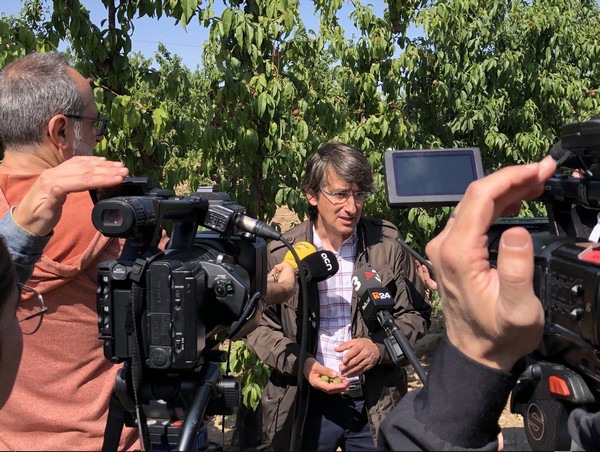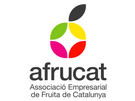Afrucat has held a press conference in a nectarine plantation in Castellserà that clearly shows the effects of the closure of the Urgell Canal. The trees are getting rid of their dehydrated fruits and there is a widespread lack of leafiness.

According to Manel Simon, the CEO of Afrucat, “It's a chronicle of a death foretold. This 10-hectare plantation has already lost 100% of this year's crop and it's managing the little irrigation water it has. A tree needs about 40 liters of water a day in its productive season and now each tree is only being irrigated with 4 liters of water every 2 days. To have an idea of how scarce that amount of water is, it's worth noting that a daily shower takes up about 200 liters of water.”
“In the last meeting with the irrigation communities, we discussed that perhaps it's time to implement practices of a few years ago when the awareness of water saving was widespread. Decreasing the water supplies of the populations by 20% would allow us to irrigate the fruit trees once more this summer and increase the trees' chances of survival.”
“It is not enough that people are told that there is less water. Perhaps, having less pressure when they open their faucets tomorrow would serve as a reminder of the situation for the whole population,” the director of Afrucat stated.
Now fruit growers must decide what to do. On the one hand, the ideal thing would be to eliminate all these dehydrated fruits, which are already irrecoverable, but this task represents a cost in labor that cannot be passed on anywhere. On the other hand, the tree will spontaneously get rid of these fruits when it's sufficiently stressed, but in the meantime, it'll suffer more.

Afrucat reiterates its demand to establish clear and rigorous criteria when prioritizing water uses and to prioritize the crops that are not annual and that, in case of death, need to be replanted and require growing for 4 to 5 years to start producing. For this to happen, it's necessary that all those who cannot irrigate have the certainty that they will be compensated economically.
Afrucat also met yesterday with members of the DG Agri of the European Commission to convey the harshness of the situation that the Catalan fruit sector is experiencing and received the commitment of the European administration to mobilize sufficient resources to save fruit growing.
For more information:
Afrucat
www.afrucat.com
